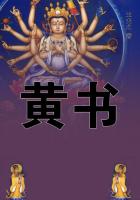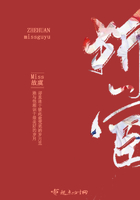Faith may be defined as fidelity to our own being, so far as such being is not and cannot become an object of the senses; and hence, by clear inference or implication to being generally, as far as the same is not the object of the senses; and again to whatever is affirmed or understood as the condition, or concomitant, or consequence of the same. This will be best explained by an instance or example. That I am conscious of something within me peremptorily commanding me to do unto others as I would they should do unto me; in other words a categorical (that is, primary and unconditional) imperative; that the maxim (regula maxima, or supreme rule) of my actions, both inward and outward, should be such as I could, without any contradiction arising therefrom, will to be the law of all moral and rational beings.
This, I say, is a fact of which I am no less conscious (though in a different way), nor less assured, than I am of any appearance presented by my outward senses. Nor is this all; but in the very act of being conscious of this in my own nature, I know that it is a fact of which all men either are or ought to be conscious; a fact, the ignorance of which constitutes either the non-personality of the ignorant, or the guilt; in which latter case the ignorance is equivalent to knowledge wilfully darkened. I know that I possess this knowledge as a man, and not as Samuel Taylor Coleridge; hence, knowing that consciousness of this fact is the root of all other consciousness, and the only practical contradistinction of man from the brutes, we name it the conscience, by the natural absence or presumed presence of which the law, both Divine and human, determines whether X Y Z be a thing or a person; the conscience being that which never to have had places the objects in the same order of things as the brutes, for example, idiots, and to have lost which implies either insanity or apostasy. Well, this we have affirmed is a fact of which every honest man is as fully assured as of his seeing, hearing, or smelling. But though the former assurance does not differ from the latter in the degree, it is altogether diverse in the kind; the senses being morally passive, while the conscience is essentially connected with the will, though not always, nor indeed in any case, except after frequent attempts and aversions of will dependent on the choice. Thence we call the presentations of the senses impressions, those of the conscience commands or dictates. In the senses we find our receptivity, and as far as our personal being is concerned, we are passive, but in the fact of the conscience we are not only agents, but it is by this alone that we know ourselves to be such--nay, that our very passiveness in this latter is an act of passiveness, and that we are patient (patientes), not, as in the other case, SIMPLY passive.
The result is the consciousness of responsibility, and the proof is afforded by the inward experience of the diversity between regret and remorse.
If I have sound ears, and my companion speaks to me with a due proportion of voice, I may persuade him that I did not hear, but cannot deceive myself. But when my conscience speaks to me, I can by repeated efforts render myself finally insensible; to which add this other difference, namely, that to make myself deaf is one and the same thing with ****** my conscience dumb, till at length I became unconscious of my conscience. Frequent are the instances in which it is suspended, and, as it were, drowned in the inundation of the appetites, passions, and imaginations to which I have resigned myself, ****** use of my will in order to abandon my free-will; and there are not, I fear, examples wanting of the conscience being utterly destroyed, or of the passage of wickedness into madness; that species of madness, namely, in which the reason is lost. For so long as the reason continues, so long must the conscience exist, either as a good conscience or as a bad conscience.
It appears, then, that even the very first step--that the initiation of the process, the becoming conscious of a conscience--partakes of the nature of an act. It is an act in and by which we take upon ourselves an allegiance, and consequently the obligation of fealty; and this fealty or fidelity implying the power of being unfaithful, it is the first and fundamental sense of faith. It is likewise the commencement of experience, and the result of all other experience.
In other words, conscience in this its ******st form, must be supposed in order to consciousness, that is, to human consciousness.
Brutes may be and are scions, but those beings only who have an I, scire possunt hoc vel illud una cum seipsis; that is, conscire vel scire aliquid mecum, or to know a thing in relation to myself, and in the act of knowing myself as acted upon by that something.
Now the third person could never have been distinguished from the first but by means of the second. There can be no He without a previous Thou. Much less could an I exist for us except as it exists during the suspension of the will, as in dreams; and the nature of brutes may be best understood by considering them as somnambulists.
This is a deep meditation, though the position is capable of the strictest proof, namely, that there can be no I without a Thou, and that a Thou is only possible by an equation in which I is taken as equal to Thou, and yet not the same. And this, again, is only possible by putting them in opposition as correspondent opposites, or correlatives. In order to this, a something must be affirmed in the one which is rejected in the other, and this something is the will.
I do not will to consider myself as equal to myself, for in the very act of constructing myself _I_, I take it as the same, and therefore as incapable of comparison, that is, of any application of the will.

